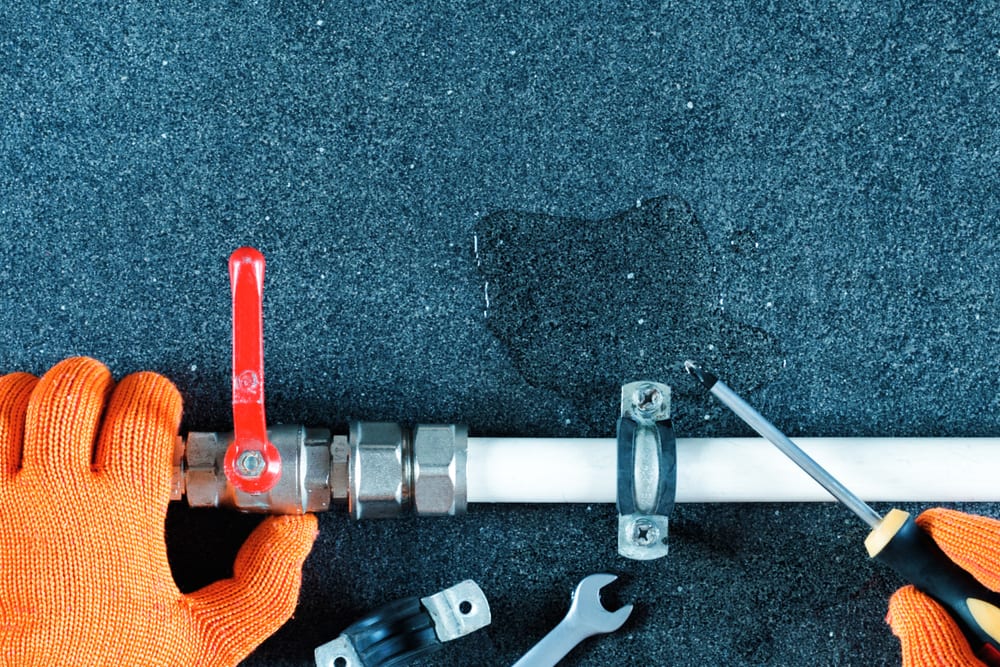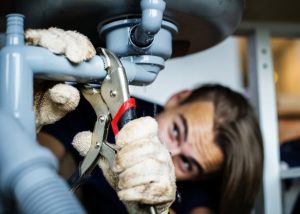6 Methods to Detect Hidden Water Line Leaks Effectively
6 Methods to Detect Hidden Water Line Leaks Effectively
Blog Article
How do you actually feel with regards to Locating water leaks?

Early detection of dripping water lines can mitigate a potential disaster. Some small water leaks may not be visible.
1. Take A Look At the Water Meter
Every residence has a water meter. Examining it is a proven manner in which helps you uncover leakages. For beginners, turn off all the water resources. Make certain nobody will flush, use the faucet, shower, run the washing machine or dish washer. From there, most likely to the meter and watch if it will certainly transform. Because no person is using it, there need to be no activities. If it moves, that indicates a fast-moving leakage. If you find no changes, wait a hr or two as well as examine back once more. This means you may have a slow-moving leakage that might even be below ground.
2. Inspect Water Intake
Assess your water bills and also track your water intake. As the one paying it, you should discover if there are any type of disparities. If you identify sudden changes, regardless of your consumption being the same, it suggests that you have leakages in your plumbing system. Remember, your water expense ought to drop under the same range on a monthly basis. An abrupt spike in your costs suggests a fast-moving leakage.
A consistent increase every month, even with the exact same behaviors, shows you have a sluggish leak that's likewise slowly intensifying. Call a plumber to extensively check your property, especially if you really feel a cozy area on your floor with piping below.
3. Do a Food Coloring Examination
When it comes to water usage, 30% comes from toilets. If the shade somehow infiltrates your dish throughout that time without flushing, there's a leak in between the storage tank and also dish.
4. Asses Outside Lines
Don't forget to check your exterior water lines also. Ought to water permeate out of the link, you have a loose rubber gasket. One small leak can lose tons of water and increase your water bill.
5. Analyze the circumstance and examine
Property owners ought to make it a habit to inspect under the sink counters and also even inside cupboards for any bad odor or mold and mildew development. These 2 red flags show a leak so timely interest is required. Doing routine assessments, also bi-annually, can conserve you from a significant issue.
Check for discolorations and compromising as the majority of devices and pipes have a life expectancy. If you believe leaking water lines in your plumbing system, don't wait for it to escalate.
Early detection of leaking water lines can minimize a possible catastrophe. Some little water leakages might not be visible. Checking it is a surefire means that assists you find leakages. One little leakage can squander lots of water and also spike your water bill.
If you suspect dripping water lines in your plumbing system, don't wait for it to escalate.
WARNING SIGNS OF WATER LEAKAGE BEHIND THE WALL
PERSISTENT MUSTY ODORS
As water slowly drips from a leaky pipe inside the wall, flooring and sheetrock stay damp and develop an odor similar to wet cardboard. It generates a musty smell that can help you find hidden leaks.
MOLD IN UNUSUAL AREAS
Mold usually grows in wet areas like kitchens, baths and laundry rooms. If you spot the stuff on walls or baseboards in other rooms of the house, it’s a good indicator of undetected water leaks.
STAINS THAT GROW
When mold thrives around a leaky pipe, it sometimes takes hold on the inside surface of the affected wall. A growing stain on otherwise clean sheetrock is often your sign of a hidden plumbing problem.
PEELING OR BUBBLING WALLPAPER / PAINT
This clue is easy to miss in rooms that don’t get much use. When you see wallpaper separating along seams or paint bubbling or flaking off the wall, blame sheetrock that stays wet because of an undetected leak.
BUCKLED CEILINGS AND STAINED FLOORS
If ceilings or floors in bathrooms, kitchens or laundry areas develop structural problems, don’t rule out constant damp inside the walls. Wet sheetrock can affect adjacent framing, flooring and ceilings.
https://www.servicemasterbyzaba.com/blog/how-to-detect-water-leakage-in-walls/

I'm just very involved in Leaking water lines and I hope you liked the new post. Loved our content? Please share it. Help other people locate it. Thank you so much for going through it.
Go Services Report this page